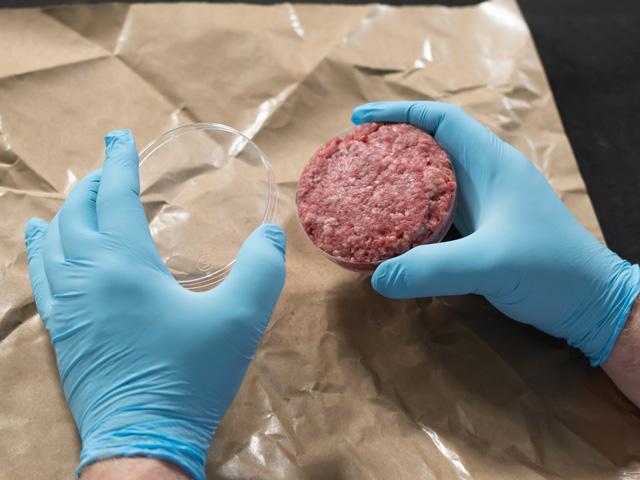DTN Ag Policy Blog
Cattlemen's Groups Complain White House Biotech EO Promotes Cell-Cultured Food
When President Joe Biden signed an Executive Order last week on biotechnology and biomanufacturing, the president focused on the prospects to "end cancer as we know it," and also transition toward more renewable energy as a way to combat climate change.
The nation's cattlemen's groups saw some other wording, including "alternative food sources" and "foods made with cultured animal cells."
The cattlemen's groups have some issues with the Biden administration over fake meat grown in a petri dish.
The U.S. Cattlemen's Association (USCA) raised concerns on Friday, pointing to comments from a senior administration official in a press briefing on the Executive Order, who talked about food security. "We're also looking to improve food security and drive agricultural innovation, including through new technologies that protect crops from disease, enhance seeds and fertilizers and foods made with cultured animal cells," the official said.
Brooke Miller, president of USCA, said that comment "flies in the face" of the Biden administration plans to spend $1 billion to help boost independent producers and processors by expanding processing capacity. Incentivizing meat from cell cultures instead helps "support for the massive, multinational corporations" investing in those products.
"The cultivation of animal cells for human consumption does not further the goals of the Biden Administration in supporting independent agricultural producers," Miller said. "Instead, it promotes corporate and consolidated control of the food supply system. Cell-cultured products cannot be independently produced - the technology is shrouded in intellectual property protection and requires intensive capital resources. These factors could lead to the monopolistic control of America's sovereign food supply that we see already today in the U.S. livestock and meat industries."
Miller added, "U.S. taxpayers should not foot the bill for a product that we aren't even sure is safe for human consumption. For these reasons, USCA opposes the provisions of this Executive Order calling for the advancement of foods produced using cell-cultured technology."
P[L1] D[0x0] M[300x250] OOP[F] ADUNIT[] T[]
On Tuesday, the National Cattlemen's Beef Association (NCBA) caught up. NCBA stated the group is "Extremely Disappointed with White House Biotechnology Executive Order." NCBA, though, highlighted multiple areas where biotechnology is useful for cattle producers.
"We encourage the administration to support the biotechnology innovations already occurring in the cattle industry," said Don Schiefelbein, president NCBA. "Technology like gene editing is critical to improving cattle health and wellbeing, while also helping the U.S. cattle industry demonstrate climate neutrality by 2040. These tools are necessary to build on our legacy as sustainable providers of beef to consumers in the U.S. and around the world."
Still, Schiefelbein added, "Unfortunately, we are extremely disappointed that this Executive Order also addresses fake meat production under the guise of food security. Supporting cell-cultured, fake meat products is the wrong approach and the administration should remain focused on supporting America's farmers and ranchers."
Under the Executive Order, the Secretary of Agriculture will submit a report assessing how to use biotechnology and biomanufacturing for food and agriculture innovation, including by improving sustainability and land conservation; increasing food quality and nutrition; increasing and protecting agricultural yields; protecting against plant and animal pests and diseases; and cultivating alternative food sources, the EO states.
In touting the Executive Order, administration officials pointed to some examples in agriculture.
"The production of bio-based chemicals, including natural nitrogen fertilizers, can be used for agricultural applications that are extracted from pig manure and then can -- that can be done with zero wastewater discharge or air emissions," a senior administration official said.
The White House also noted USDA is also developing new regulatory processes "to promote safe innovation in agriculture and alternative foods, allowing USDA to review more diverse products."
At a White House conference on Sept. 14, officials also touched on USDA's plan to spend $500 million for a new grant program "to support independent, innovative and sustainable American fertilizer production to supply American farmers, which can make use of advances in biotechnology and biomanufacturing."
White House EO on Advancing Biotechnology and Biomanufacturing Innovation for a Sustainable, Safe, and Secure American Bioeconomy https://www.whitehouse.gov/…
Chris Clayton can be reached at Chris.Clayton@dtn.com
Follow him on Twitter @ChrisClaytonDTN
(c) Copyright 2022 DTN, LLC. All rights reserved.




